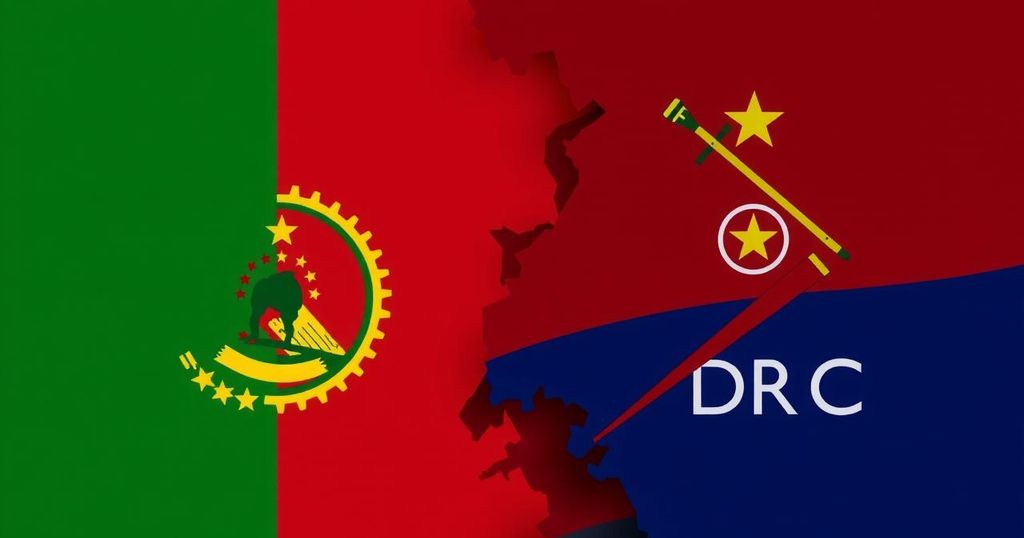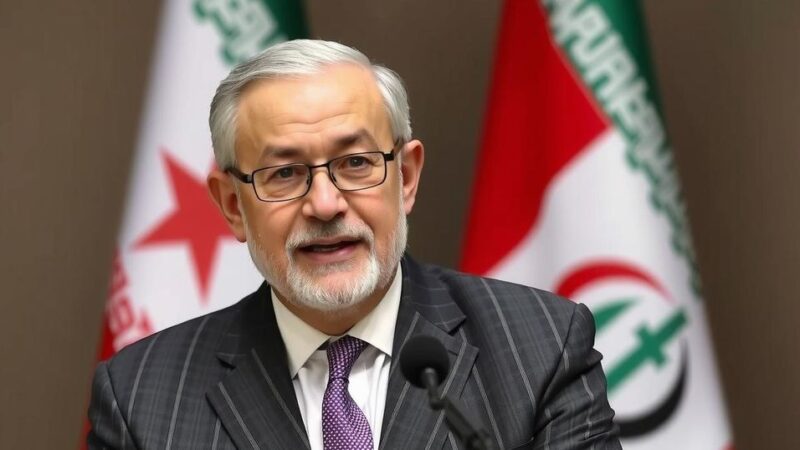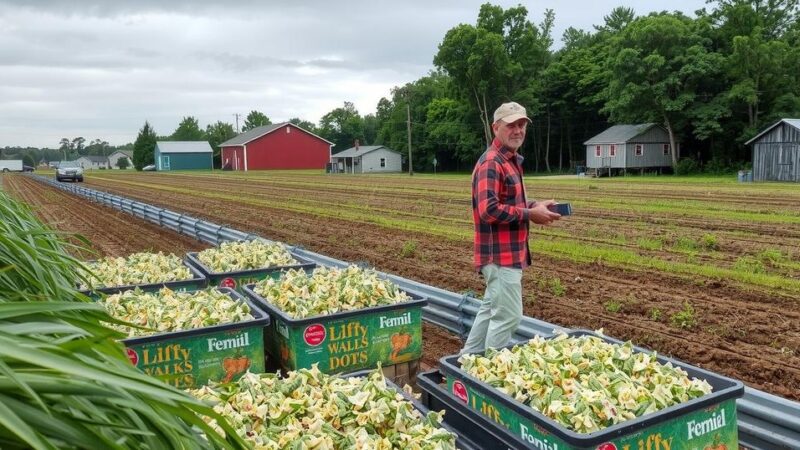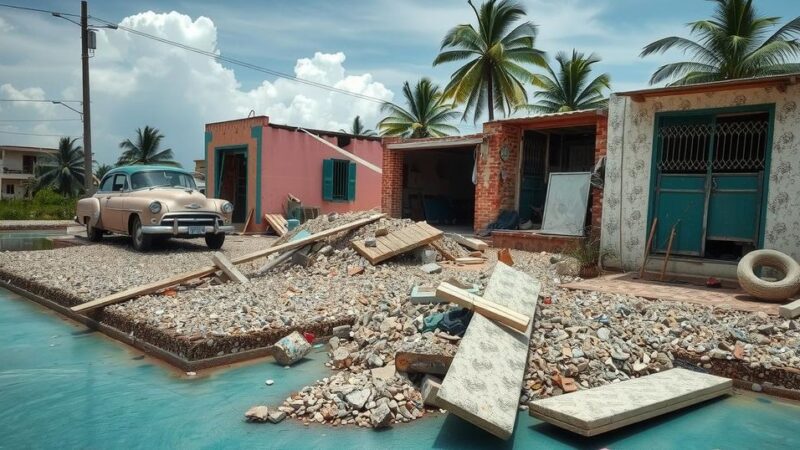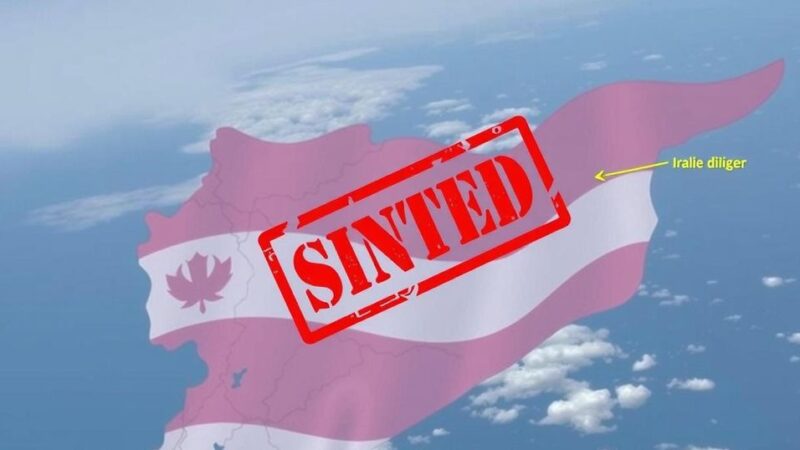The Angolan government has expressed deep concerns over renewed violence in the eastern DRC, particularly in Kalembe, where clashes between M23 rebels and Congolese forces (Fardc) erupted. This violation of the ceasefire was condemned by Angola, which has been mediating between the DRC and Rwanda. As tensions rise, civilian displacement and humanitarian crises are expected to increase in the region.
The resurgence of violence in eastern Democratic Republic of Congo (DRC) has raised significant alarms for the Angolan government, particularly as Luanda had been advocating for a more enduring ceasefire following a month-long lull in hostilities. The latest confrontation occurred in Kalembe town located in the Walikale territory of North Kivu Province, where M23 rebels engaged Congolese forces (Fardc) on Monday. Just a day prior to this clash, M23 had seized control of the town, though they were subsequently repelled by the Fardc, who managed to recapture the territory. On Tuesday, the Angolan government expressed its dismay through a public statement, denouncing the new outbreaks of violence as a blatant infringement upon the principles established in the resolutions from the ministerial meeting held on July 30, as well as a breach of the ceasefire that became effective on August 4. Angola has taken on a mediatory role between the DRC and Rwanda, both of whom are accused of backing insurgent factions trying to destabilize each other’s governments. In their latest meeting in Luanda, two weeks ago, both nations pledged to persist in seeking a peaceful resolution. Kinshasa has committed to not supporting the FDLR rebels, deemed an adversary by Kigali, contingent upon Rwanda’s withdrawal of support for the M23. In its statement, Angola firmly repudiated what it termed a “hostile act,” advocating for a respect for the ceasefire as stressed during the ministerial meeting on September 14. Reports of intense fighting emerged over the weekend surrounding Kalembe, where the Wazalendo self-defence group, allied with the Congolese army, clashed with M23 rebels. The Congolese forces purportedly reclaimed control of the area. Juvenal Munubo, a former MP from Walikale, stated, “I have learnt that the NDC Rénové (Kivu armed group), with logistical support from the Fardc, has regained control of the town of Kalembe. I call on the Fardc and the patriotic resistance fighters to consolidate this victory.” Moreover, the Congolese government has indicated that the M23 has intentions to extend their control into South Kivu, Tshopo, and Maniema provinces. Despite the ceasefire that had been relatively effective since early August, allowing some displaced citizens to return to their homes, officials in Kinshasa have not publicly addressed the recent violations of the truce. Presently, the DRC is not open to negotiations with the M23, although discussions are ongoing with Rwanda over security matters related to a draft peace agreement. In a meeting on October 12, Rwanda and DRC foreign ministers resolved to continue addressing critical security issues as part of the peace agreement process. In this context, Angola has urged parties to refrain from actions that could exacerbate the conflict and worsen the dire humanitarian conditions in eastern DRC. Angola remains invested in the efforts to attain a sustainable resolution under the Luanda Process, endorsed by President João Lourenço and the African Union’s oversight. Kigali and Kinshasa have also agreed to establish an ad hoc verification mechanism to monitor peace efforts, expected to be officially operational in Goma, DRC, by November 5, 2024. The latest clashes have resulted in injury to at least 14 civilians, while many have been compelled to abandon their homes. The Office of the United Nations High Commissioner for Human Rights forecasts that approximately 940,000 individuals will be displaced in 2024, escalating the total displacement figures in the DRC to nearly seven million. Humanitarian conditions remain precarious, with civilians in North Kivu vulnerable to overcrowding and severe violations, including instances of sexual violence.
The ongoing conflict in the eastern regions of the Democratic Republic of Congo frequently involves various armed groups, notably the M23 rebels, who have been accused of seeking control of territory, which contributes to instability in the region. Angola has taken on a role as mediator in the regional tensions between the DRC and Rwanda, who are engaged in a complex political landscape where both nations accuse one another of supporting rebel factions aligned with their respective adversaries. Amid these dynamics, ceasefires have been attempted, with varying degrees of success, but are often undermined by renewed violence. The humanitarian crisis in the region continues to grow with significant displacement and suffering among civilians caught in the conflict.
The renewed fighting in the Democratic Republic of Congo, particularly around Kalembe, stands as a poignant reminder of the fragility of peace in the region. Angola’s condemnation of the violence underscores ongoing regional efforts to mediate a sustainable ceasefire while addressing mutual accusations between DRC and Rwanda. With the humanitarian situation poised to deteriorate further, the importance of effective conflict resolution and adherence to ceasefire agreements cannot be overstated, as these are critical for stabilizing the region and protecting innocents affected by warfare.
Original Source: www.ghanaweb.com

